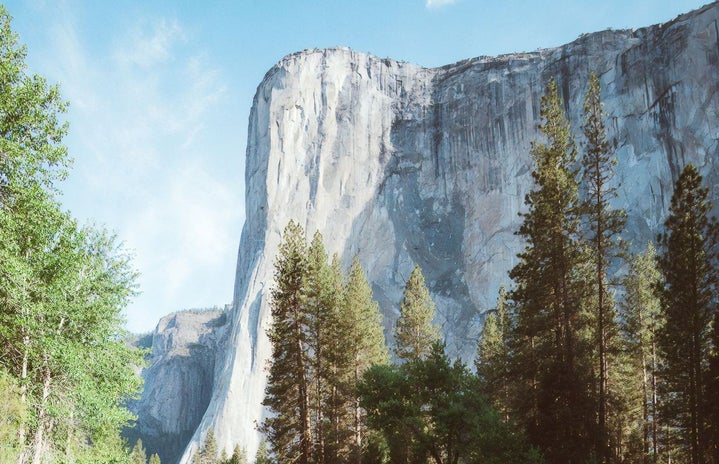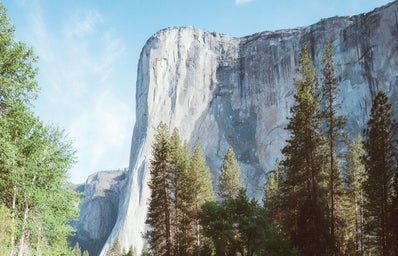The concept of “the future” is frightening. We as humans tend to get caught up in the little aspects of life: what we’re going to have for breakfast, what songs we’re going to listen to on our drive to work, what tasks we have to complete throughout the day, deciding our plans for the weekend — the list goes on. Going about our day to day lives, it’s hard to see the big picture. It’s even harder to picture how quickly humans are destroying our planet, much less our individual part in it.
Hearing all of the data, statistics and warnings being thrown at us creates a lot of anxiety. When the United Nations says we only have 11 years left to prevent irreversible damage to our environment, that’s enough to send a chill down someone’s spine. When NASA publishes data saying that the global temperature has increased 1.62℉with most warming occurring within the last 35 years alone, some might be thinking about how we have played a role. When Conservation International reports that 195 nations have signed the Paris Agreement and the United States is not one of them, some might question where our value lies as a country.
But that’s the thing: only some might. The biggest challenge relating to the climate crisis is us. In order to move towards a safer, better and cleaner environment we need everyone’s participation. The government makes the big power moves regarding fossil fuels and renewable energy, but how can everyone do their part? With such a diverse range of skills, knowledge and resources, what can we realistically expect out of everyday people? Well, let’s go back to the basics.
For one, the rate in which humans are creating waste is unbelievable. According to the Environmental Protection Agency (EPA) each human produces 4.51 pounds of trash each day. This seems relatively small, but when you do some quick math, that equates to approximately 1,646 pounds of trash each year and almost 130,000 pounds of trash in the average lifetime. Environmental activist Sierra Quitiquit created a potential alleviator called Plastic Free Fridays. The movement is exactly what it sounds like: each participant commits to refusing single-use plastic on Fridays. For those who are new to eco-friendly habits, committing a minimum of one day a week makes a great difference and is an entry point to even bigger forms of activism and environmental protection. Reducing our own waste means reducing the amount of waste that ends up in our oceans, lakes, beaches, and landfills.

Courtesy: Antoine Giret
Minimizing your carbon footprint, or the number of emissions you as an individual are responsible for through your actions, is also a big proponent to combating the climate crisis. Aside from the “reduce, reuse, recycle” tips we learned about waste in elementary school, the things we don’t take time to think about in everyday life also impacts the environment. When you can, it is important to drive less and utilize alternative methods of transportation because vehicles are the cause of approximately one-third of pollution in the United States. When it comes to eating, an easy eco-friendly habit to be conscious of is conserving our water. Approximately 96.5 percent of Earth’s water is too salty for human consumption, so what remains of the resource must be used wisely. Ways to reduce our water waste can take on a wide variety of forms, such as taking shorter showers, using eco-friendly soap, utilizing reusable items, consuming less meat, and buying fresh food seasonally and locally.

Courtesy: Anne Preble
As important as it is to solidify these sustainable habits in 2020, it is just as vital to stay informed and use your voice as a catalyst for change. While safeguarding a clean environment shouldn’t be a controversial political issue, it is. As the upcoming election approaches and new environmental protection laws are being passed, each citizen should know what is happening (and not happening) at the government level. Voicing our opinions and getting involved helps educate our leaders and our communities about the issues our world is facing. Stay informed on environmental politics, go out and protest, and post on social media about what makes you angry. As activists, our voices are much louder than we think.

Courtesy: Li-An Lim
Just like your mother used to say, it’s important to go outside. We tend to forget that there is more to the world than the concrete jungle we’ve found ourselves encased in. The environment is vast and bursting with life and waiting for you to see how great it is. The best part is, you don’t have to travel to the Grand Canyon or trek the entire Appalachian Trail to see it, there are plenty of local areas that are only a quick trip away. So, go on a hike, breathe in some fresh air, and take a few moments to remember that life is much bigger than just you and me. The appreciation you gain while being outdoors will only make you want to protect it more.

Courtesy: Jake Melara
When you’re thinking about your list of New Year’s resolutions, I urge you to think about all the actions you can take to mitigate the climate crisis. Other activists, leaders in environmental change and the Earth desperately need your participation. The concept of “the future” is frightening, but it doesn’t have to be.
Want to see more HCFSU? Be sure to like us on Facebook and follow us on Instagram, Twitter and Pinterest!



